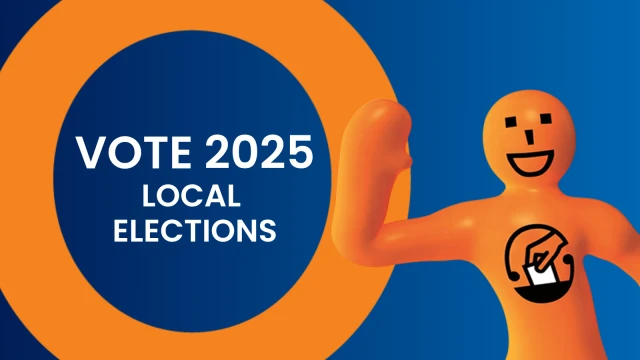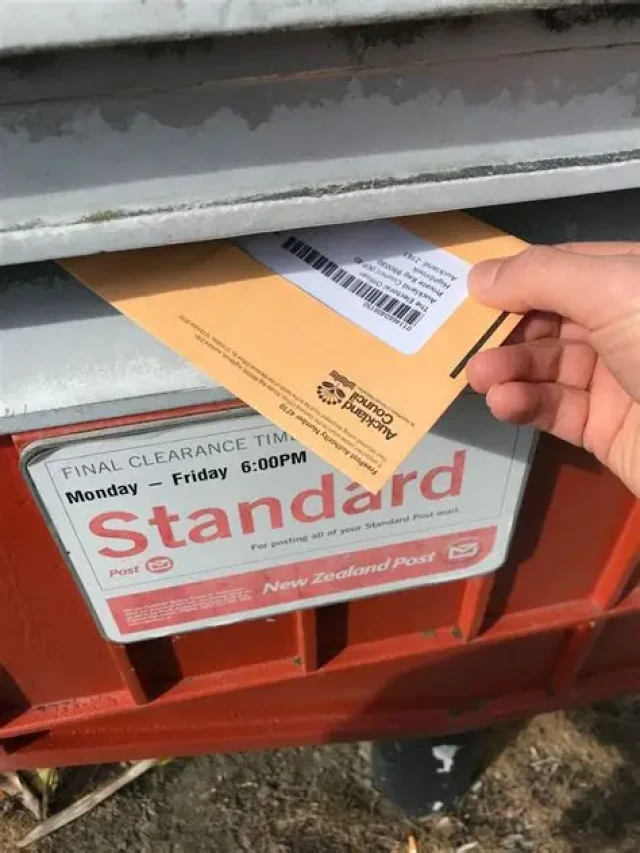The low down on local elections
Your 2025 local government elections are coming up! It’s an awesome opportunity for you to help shape the future of your community. From whether your town or city spends money on footpaths or accessible parks, waterworks or libraries – the people you vote in will make that choice so here’s a guide to making that happen!
August 4th, 2025

What are local elections?
Across New Zealand, local elections are held at the same time every three years. Everyone who’s enrolled to vote in your area will have the opportunity over nearly a month to elect members of city, district, and regional councils, including your mayor.
The people elected to local councils get to make decisions about our daily lives and the future of our towns and cities. They set and collect rates, oversee town planning, and provide services like rubbish collection, parks, and libraries.
Why do they matter?
Sometimes these choices on where to spend money can seem like they’re always the same, so it wouldn't matter who gets in. But if you think about where your home is seeing growth or which areas aren't being looked after, that’s due to the choices of the people you elect.
There might be someone who loves sport like you and fights to get more money into that area, or there might be someone who really wants more money spent on local subsidies for people over 65. The people you vote in should represent what matters to you so that you can see the place you love and live, grow into a place you keep loving living in.
How does voting work?
Each local council runs its own election, but they all happen at the same time across the country. This year, voting is taking place from 9 September to 11 October.
Local government elections are a bit different from national government elections and you vote by post or pop it in a ballot box.
If you’ve already enrolled, you’ll receive your voting papers in the mail. This will also include a booklet with information about the candidates and a pre-paid return envelope.
You fill in your voting papers, put them in the envelope, and drop them in a New Zealand Post box by 7 October.
Alternatively, you can drop your papers in your council’s ballot box by 12pm 11 October – check with your local council about where the ballot box is.
(You can find the full list of council websites sorted by map here!)

There are other options for voting if you’re disabled or have an impairment that prevents you from filling in your voting papers. We’ll cover this a little later.
Who can vote?
You can enrol to vote if you’re 18 or older, a New Zealand citizen or permanent resident, and have lived in New Zealand for more than one year continuously at some time in your life.
Enrolling to vote
As we mentioned, you'll need to be enrolled before you can vote in your local election.
Enrolling means signing up with your current information so that your council knows where to send the election papers and can be sure that you live in the area you say you do! This information is kept very private and securely and they have a whole lot of rules they have to follow to make sure this happens.
When you enrol to vote, your name and address are added to the electoral roll – this is the official list of people registered to vote.
You only need to enrol once in your life, but you do need to update your contact details when you move to a new address. Otherwise you’ll never get your voting papers!
If you enrol or update your address after 1 August 2025, you won’t get your voting papers sent to you in the mail. In that case, you’ll need to contact your council’s Electoral Officer to arrange to do a special vote. The last day you can enrol to vote is Friday 10 October 2025.
Find your council’s Electoral Officer.
Māori roll
If you’re of New Zealand Māori descent, you can choose to enrol on the Māori roll or the general roll. Find out more about the Māori roll here.
Unpublished roll
If you are concerned about your personal safety due to having your information publicly available on the electoral roll, you can apply to be on a confidential unpublished roll. Find out more about the unpublished roll here.
Accessible voting
Voting with help from a support person
If you need help to read or mark your voting paper, a friend, family member or electoral official can be your support person. Your support person can mark the voting paper for you if you ask them to, but they cannot tell you who you should vote for.
Telephone voting for blind, low vision, or physically disabled voters
Some council elections will include telephone voting for people who are blind, have low vision, or have a physical disability and can’t mark their voting papers. Contact your council to find out if they will have a telephone voting service.
Māori ward referendum
During the 2025 elections, some local councils are holding a separate referendum asking voters if they would like to keep Māori wards. Māori wards are voting areas that let people who are on the Māori electoral roll vote for Māori representatives on the council.
The purpose of Māori Wwrds is to make sure Māori voices and views are heard in local government decisions, and they support the principles of the Treaty of Waitangi.
Key dates
6 August 2025 - Public announcement of candidates’ names
9-22 September 2025 - Voting documents are delivered
7 October 2025 - The last day for posting vote by mail – after this date, you will need to return your voting papers to your council’s secure ballot box
11 October 2025 at 12:00pm - Election day – voting closes midday
11 October 2025 from 12:00pm - Preliminary results are announced
16-22 October 2025 – The final results are announced
October/November 2025 – The elected council members are sworn in
Check out these sites for more information about the local elections
Electoral Commission – this site even has information in alternative formats including large print, audio, Easy Read, Braille and New Zealand Sign Language (NZSL).
Fun fact
By enrolling to vote, you’ll also become eligible for Jury Duty! People who are on the electoral roll might get called up randomly to take part in a jury. This mean you could be part of 12 people who hear a case in court and decide if someone is innocent or guilty.
If you're 65 or over, permanently disabled or have a chronic illness, you can request to be permanently excused when you respond to your jury summons though. You or your support person will just need to include evidence with the response form.